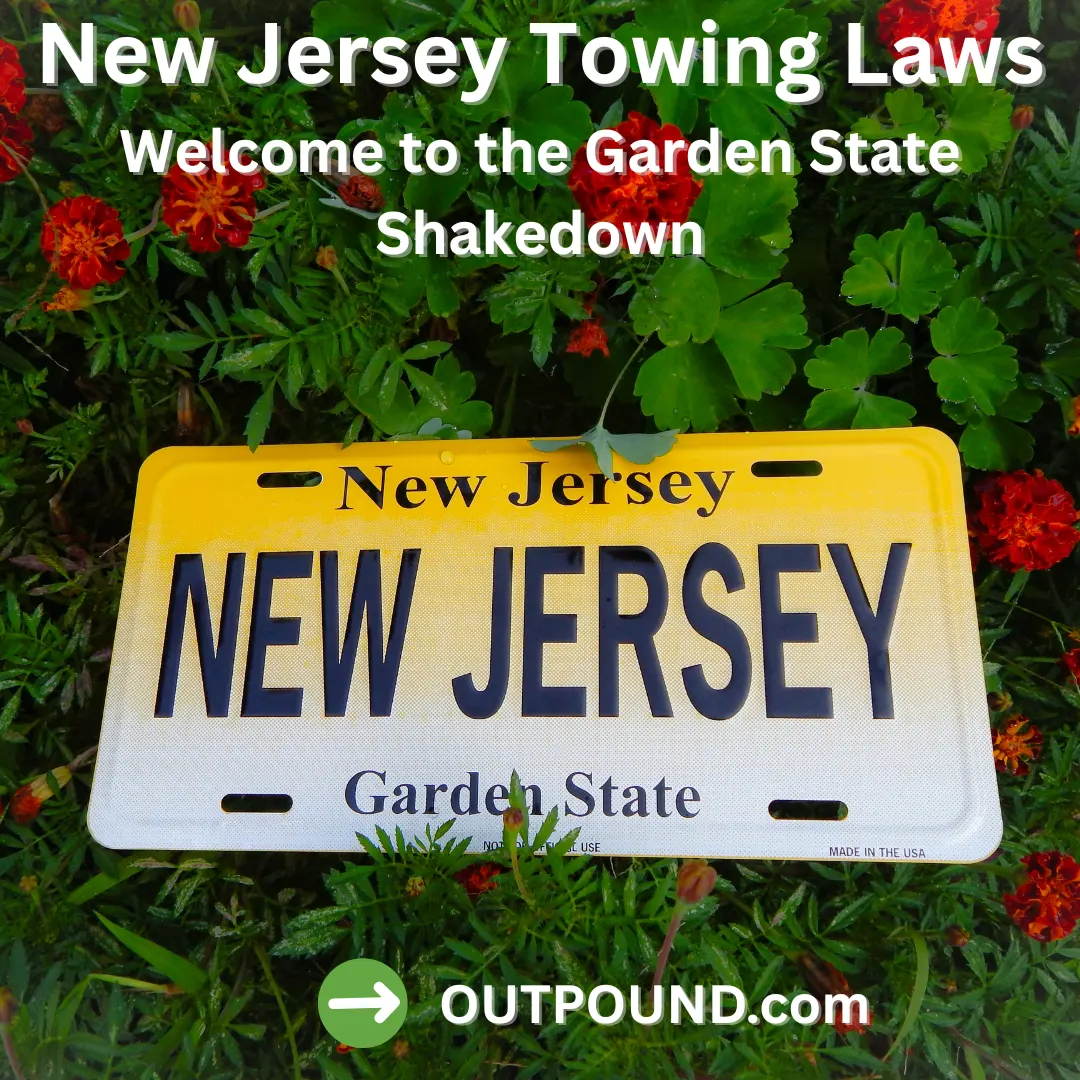Welcome to the Garden State Shakedown

New Jersey, home of diners, jughandles, and tow truck drivers who could teach the mafia a thing or two about “collections.” From Newark to Trenton to the Shore, Garden State towing isn’t just a business, it’s an art form. You could be sipping coffee in Hoboken or grabbing a hoagie in Camden, and by the time you come back, your car’s already en route to a secret storage facility with fees that multiply faster than tolls on the Turnpike.
Who Can Tow?
In New Jersey, anyone with a state towing license and authorization from either law enforcement or a property owner can legally haul your ride away. Sounds harmless enough, until you realize that every strip mall, apartment complex, and Wawa parking lot seems to have a tow sign the size of a postage stamp hidden behind a bush. Private-property towing here is basically a sport, and tow companies are the undefeated champions.
When Can They Tow?
Cars can be legally towed for parking in fire lanes, blocking driveways, unpaid tickets, expired registrations, or “unauthorized parking” on private property. And in some cities, “unauthorized” can mean literally anything. There’s no such thing as a “quick stop” in New Jersey, run into a store for five minutes, and your car might be halfway to a yard in Secaucus before your bagel even toasts.
Beach towns? Even worse. During the summer, towns like Asbury Park and Wildwood become prime feeding grounds for tow trucks looking to haul in tourist gold. Miss a meter refill by a minute, and you’ll get an expensive reminder of why the Shore is famous for both sand and scams. Notification Requirements
Tow operators must notify local police immediately after a vehicle is removed. Police then log it into a statewide database so owners can locate it. In theory, this makes things simple. In reality, calling New Jersey police about your towed vehicle can feel like ordering from a drive-thru that never listens. You’ll get bounced between departments until someone finally mutters, “Try calling XYZ Towing, they have half the town’s cars.”
Written notice to the vehicle owner? Sure, eventually. Usually after your car’s been sitting in storage long enough to rack up fees that could cover a down payment on another vehicle.
Fees and Storage
The state sets “reasonable” limits, but that word means nothing here. Expect base tows from $150–$250, plus $25–$50 per day in storage. But wait!! There’s more!! You’ll also get hit with administrative, release, after-hours, and “lot access” fees, because New Jersey tow yards apparently charge extra for letting you look at your car.
And don’t even think about showing up after closing hours. These lots shut their gates early and open late, ensuring your vehicle collects at least one extra day of storage. It’s almost impressive, if it weren’t so infuriating.
Vehicle Recovery
Bring government ID, proof of ownership, and cold hard cash. Credit cards? Maybe, but expect a “processing surcharge.” Paperwork not perfect? Tough luck. The clerk behind the counter will shrug and point to the “storage fees increase daily” sign taped crookedly to the window.
Legal Recourse
You can file a complaint with local police or the Division of Consumer Affairs, but results vary. The small claims process is available for disputes, but between filing costs, time off work, and the emotional toll of hearing “we’re looking into it,” most people just pay and move on.
The Parkway Payback: How to Get Your Car Back Without Losing Your Mind
New Jersey’s tow scene is as legendary as its traffic. Between hidden signage, mysterious fees, and impound clerks who seem personally offended by your existence, getting your car back can feel like escaping an episode of The Sopranos.
That’s why OUTPOUND.com exists! We’re here to help you track your car, verify fees, and get ahead of the game before you hit your breaking point. Think of us as your GPS for impound insanity. Because in New Jersey, you don’t just drive — you survive.

